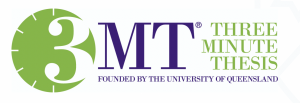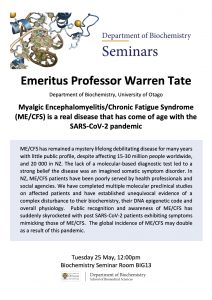Upcoming events hosted by or involving Genetics Otago will be listed here. Please check back regularly for updates. A calendar of events that may be of interest to our members can be found at the bottom of this page and in the sidebar of other pages on this site, please note that this includes events hosted outside of Genetics Otago.
- GO Annual Symposium
- Zebrafish Hub Annual Meeting
- Oxford Nanopore Technology Workshop
- CRISPR Workshop
- Calendar of Events
GO Annual Symposium – POSTPONED
As usual, the Symposium will highlight the fantastic research being done by GO members from around the country through presentations, posters and awards.
Date: New date TBC (tentatively 20th February 2025)
Time: 9:00 am – 5:00 pm
Venue: TBC
Programme
A draft programme will be available here soon.
Registration
Registration for this event will open closer to time.
Registration Fee
Due to budget constraints, we will be charging a $50 per person registration fee for all attendees to subsidise the costs associated with the Symposium. We have received confirmation that this registration fee can be paid from S accounts, and if you are in a position to make a donation on top of this fee, we would gladly receive it. However, we do not want the payment to be a barrier to attendance, so if you are not in a position to make a payment, please contact us go@otago.ac.nz.
Payment Methods
Payments from an S account (or other University account) can be journaled to Genetics Otago account GL.10.LH.A14.2541 via your finance associate. Please include the surname(s) of the registrants that the payment covers in the narration.
If you need to make payment using funds from outside the University this can be arranged via the Cashier’s Office. Please contact us for details (go@otago.ac.nz).
Awards
The Annual Genetics Otago Awards including The Genetics Otago Award, Outstanding Mentor Awards, Student Supervisor Award, Publication Awards, Poster Awards and Science Communication Prize will be presented at the conclusion of the Symposium and nominations for these are now open.
All award nominations should be submitted by email to go@otago.ac.nz.
Full details of the awards can be found here: Award Details.
Zebrafish Hub Annual Meeting
Date: Wednesday 27th November 2024
Time: 10:00 am – 1:00 pm
Venue: Octagonal Room, Dunedin Hospital
Agenda: Zebrafish Hub 2024 Agenda
Oxford Nanopore Technology Workshop
Join us at Ōtākou Whakaihu Waka, Dunedin, for a one day Oxford Nanopore Technology symposium. This event, jointly hosted by Genomics Aotearoa and the Genetics Otago ONT hub, will feature research talks highlighting different ONT use cases, a technical sequencing demonstration and an EPI2ME workshop.
This is an in-person event being held on Friday, December 6th at the Ōtākou Whakaihu Waka / University of Otago campus.
Registration for this event is free of charge.
This event is sponsored by ONT, and is supported by the Otago Genomics Facility.
Contact tyler.mcinnes@otago.ac.nz for any queries.
CRISPR Workshop
This event is designed to cater to the diverse community of researchers at the University of Otago who are using or interested in using the CRISPR-Cas diagnostics toolkit. We warmly welcome everyone to attend.
For the workshop, you will need a laptop with either a macOS or a Windows operating system (with Windows Linux subsystem installed). Optionally, it would be advantageous if you have Geneious Prime software installed (a free trial time can be obtained on the official website)
Date: Wednesday 13th December 2024
Time: 9:00 am – 2:00 pm
Venue: Hunter Centre, Room 1.18
Programme: CRISPR-Dx Programme
Please register your attendance using the button below. The workshop will only go ahead if >10 people register, with a cap limit of 20. A final decision will be delivered on December 4th if it goes ahead with the corresponding detailed programme.
Calendar of Events
The below is a calendar of events hosted by GO as well as events hosted by others that may be of interest to our members. If you have an event you would like us to include please contact us here.
This entertaining event gives thesis students the chance to present their research to a large audience while competing for a number of generous prizes, with the overall University of Otago Doctoral winner going on to participate in the online Asia-Pacific 3MT® final. We also have the opportunity to send the best Master’s contestant to represent the University in the online New Zealand Masters 3MT® National Inter-University Challenge.
The competition is open to both thesis Master’s and Doctoral students, who must communicate their research in no more than three minutes, with the help of only one static slide, with the presentation aimed at a non-specialist audience.
At this stage, the local 2021 University of Otago competition will be held in person, but arrangements are being made to revert to an online competition if necessary.
Entries close Friday 25 June
Register for this event
Have a look at past years’ events on our archive page.
HEDC Professional Development Programme
Develop a sustainable job search process
It’s a job getting a job so make sure that you come to this workshop to share ideas for getting yourself a strategy for finding a meaningful job.
The workshop will be facilitated by Yvonne Gaut, Career Development Centre.
Dates
Friday 14 May, 10.00am-12.30pm
Thursday 8 July, 10.00am-12.30pm
Friday 10 September, 12.30-3.00pm
Registration link: https://corpapp.otago.ac.nz/training/hedc/course/16757/course/0/
Assoc. Prof. Caroline Beck
Department of Zoology, University of Otago
‘Telling tales of tadpole’s tails’
Tadpoles of the clawed frog Xenopus laevis can regenerate their spinal cord-containing tails, producing a new functional tail in just one week. However, they are not always successful at this, and some tadpoles heal rather than regenerate. We have found that raising tadpoles in antibiotic media alters their skin microbiome, and also makes them less likely to regenerate. Conversely, adding heat killed E.coli or purified LPS to the tadpole’s medium after amputation makes them more likely to regenerate, hinting at a role for the skin microbiome in regeneration. We are currently undertaking a large scale analysis to determine the origin and nature of the tadpole’s microbiome. We also seek to uncover the mechanism by which commensal bacteria might influence this regeneration, through interaction with the tadpole’s innate immune system, particularly TLR4, which we have targeted with CRISPR/Cas9.
Tēnā koutou I tēnei ahiahi,
Please find the attached Bioethics Seminar poster for next Monday – 17 May 2021, 1-1:50pm – hosted by Odette Shaw, PhD, titled, “Who Owns Data? A Critical Analysis of Data Ownership and Data Rights.”
Bioethics Seminar Poster – Odette Shaw – 17 May 2021
For those who wish to attend in person, please come to the Bioethics Seminar Room (Room 119), Bioethics Centre, Level 1, 71 Frederick Street, Dunedin.
For those who cannot attend in person, you are welcome to join via the ZOOM link below:
To those joining online, we do ask that you please mute yourself upon arrival to avoid accidental interruptions.
https://otago.zoom.us/j/922351556
Password: 595584
Video linked:
To secure the booking for this seminar video link (northern campuses), please register your name, subject and date of seminar for attendance:
University of Otago, Wellington Room C.31 Contact: avvcsupport.uow@otago.ac.nz
University of Otago Christchurch Room 7.11 Contact: av.uoc@otago.ac.nz
Please note: if there is no registration (for northern campuses) by the Thursday prior to the advertised seminar, the booking currently in place will be terminated.
Dunedin attendees do not need to register
See attached PDF for details of each weeks seminar:
Visit the HEDC Website for details and registration for this event and all other HEDC workshops. Places are limited.
Matariki Lecture – Friday 21 May, 12am-1.30am, via Zoom
Professor Ehmke Pohl, Durham University: Virus-X – exploring the structural and functional diversity of the Virosphere
In this lecture, the key methods and challenges involved in establishing the pipeline from collecting virus samples to analysing the structures and functions of the encoded enzymes will be presented. The potential of Virus-X products will be highlighted with specific examples of applications in Covid19 detection technologies.
- The lecture will be recorded and broadcasted on the Matariki Youtube channel afterwards.
- Zoom: https://uu-se.zoom.us/j/65162580631
- For more information, contact Ellen Sjöholm (ellen.sjoholm@uadm.uu.se)
Emeritus Professor Warren Tate: Myalgic Encephalomyelitis/Chronic Fatigue Syndrome (ME/CFS) is a real disease that has come of age with the SARS-CoV-2 pandemic
ME/CFS has remained a mystery lifelong debilitating disease for many years with little public profile, despite affecting 15-30 million people worldwide, and 20 000 in NZ. The lack of a molecular-based diagnostic test led to a strong belief the disease was an imagined somatic symptom disorder. In NZ, ME/CFS patients have been poorly served by health professionals and social agencies. We have completed multiple molecular preclinical studies on affected patients and have established unequivocal evidence of a complex disturbance to their biochemistry, their DNA epigenetic code and overall physiology. Public recognition and awareness of ME/CFS has suddenly skyrocketed with post SARS-CoV-2 patients exhibiting symptoms mimicking those of ME/CFS. The global incidence of ME/CFS may double as a result of this pandemic.
From December 2019, when an outbreak of a pneumonia caused by a novel coronavirus was first recognised in China, to the availability of several effective vaccines less than 1 year later – how did we get here? Dr Ussher from Microbiology and Immunology at the University of Otago will discuss the need for a COVID-19 vaccine, how the vaccines were developed so quickly, the safety and efficacy of Pfizer COVID-19 vaccine, and the challenge posed by emerging viral variants.
More details here
See attached PDF for details of each weeks seminar:





